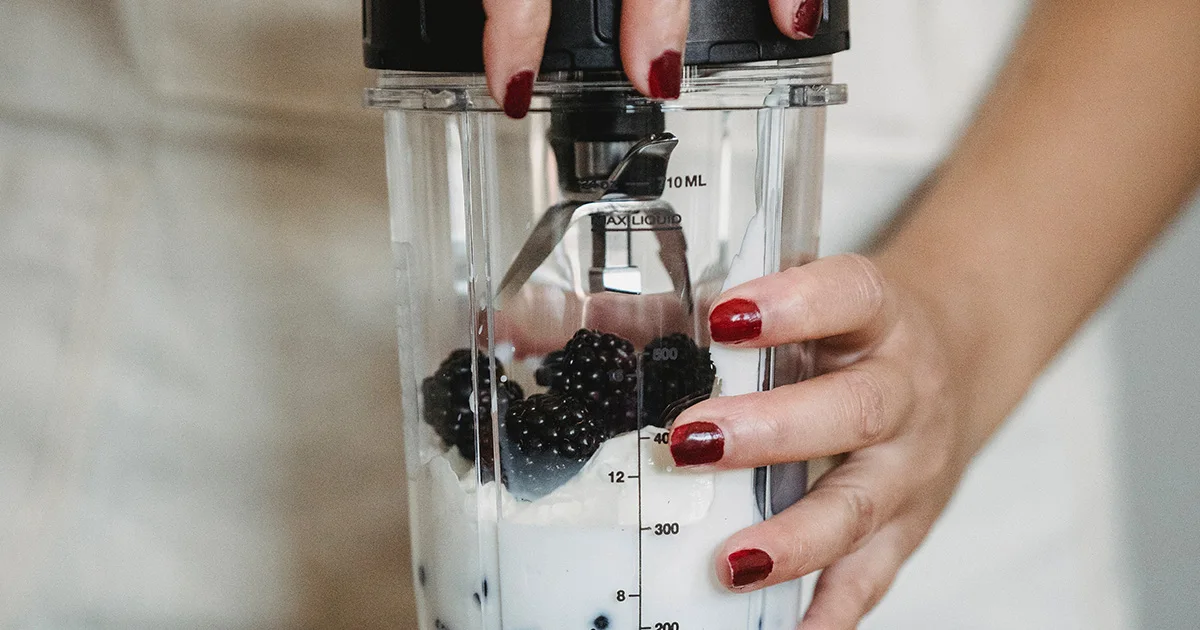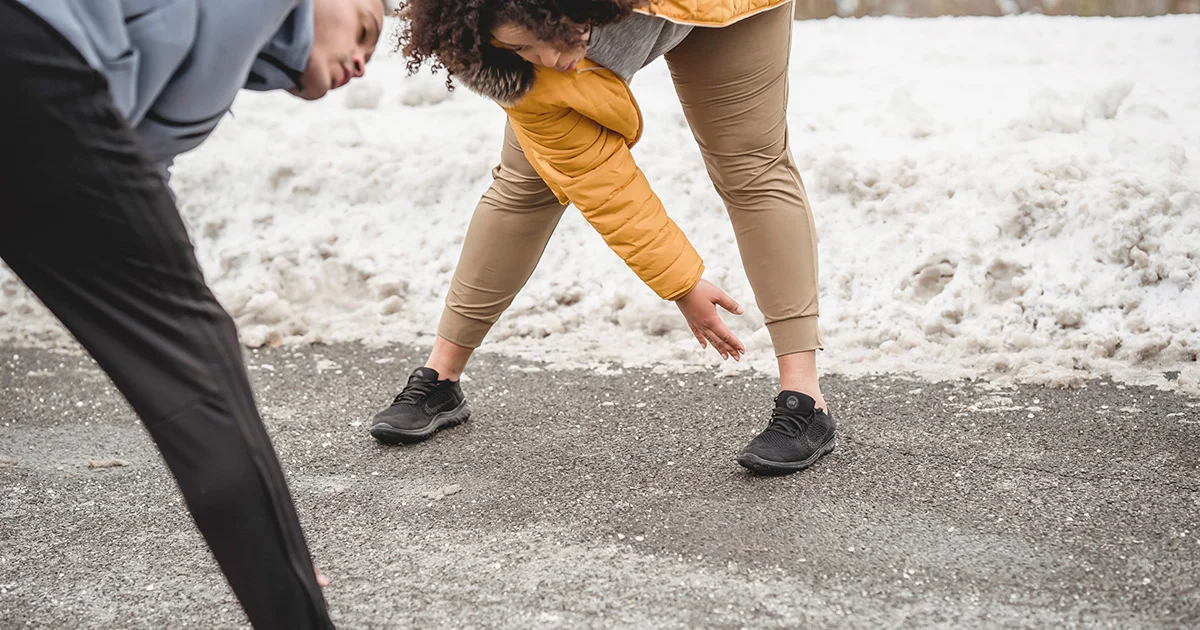Key takeaways
No known negative interactions exist between Ozempic and coffee (or any other foods or beverages). Unless your healthcare provider advises otherwise, it should be safe for you to savor your cup of coffee while on Ozempic.
Here's what we'll cover
Here's what we'll cover
Key takeaways
No known negative interactions exist between Ozempic and coffee (or any other foods or beverages). Unless your healthcare provider advises otherwise, it should be safe for you to savor your cup of coffee while on Ozempic.
It’s not always safe to mix prescription medications with certain substances, like alcohol. But what about coffee? If you’re like 90% of North American adults, you drink it daily. So, if you’ve started taking Ozempic (semaglutide), you may wonder if caffeine—either in coffee or energy drinks—is off-limits for you now.
Good news: you’re probably good to keep up your caffeine routine — but, you may want to use a little more caution than you previously did. Here’s what you need to know about Ozempic, coffee, and caffeine.
Ozempic Important Safety Information: Read more about serious warnings and safety info.
Can you drink coffee on Ozempic?
No foods or beverages are known to interact negatively with Ozempic, including coffee. Unless your health provider advises you otherwise, you should be okay to enjoy your cup of joe on Ozempic. Having said that, coffee doesn’t always sit well with people, and you may be more or less sensitive to caffeine’s effects when taking Ozempic.
Caffeine can increase heart rate and blood pressure, especially if you have too much of it. Ozempic can also increase heart rate to a small extent — about 2 to 3 beats per minute. If you have a heart condition, your health provider may recommend abstaining from caffeine while taking Ozempic. Ingesting too much caffeine can also cause symptoms like:
Shakiness
Insomnia
Headaches
Dizziness
Increased heart rate
Dehydration
Some of these, including increased heart rate and headaches, can also occur with Ozempic. For these reasons, your health provider may recommend avoiding or limiting your coffee consumption, depending on your personal medical history. You may want to check with your health provider about drinking coffee on Ozempic if you:
Are pregnant or breastfeeding
Have insomnia or another sleep disorder
Have migraines or chronic headaches
Have anxiety
Have ulcers or gastroesophageal reflux disease (GERD)
Have high blood pressure
Have arrhythmia
Take certain medicines or supplements, such as stimulants or heart or asthma medications
Another concern about coffee is that it can be dehydrating. If you are experiencing some of the less desirable side effects of Ozempic — namely, nausea, vomiting, and diarrhea — those can also be dehydrating. So, what does that mean for coffee lovers who happen to be taking Ozempic? It depends.
For people who are used to regularly drinking coffee, research suggests coffee may be similarly hydrating to water.
But drinking a lot of coffee — 500 mg of caffeine or more — can have a diuretic effect. In other words, coffee can make you pee more, leading to dehydration if you’re not careful, or if you are already dehydrated from some of Ozempic’s side effects. Low to moderate coffee consumption does not seem to have the same pee-inducing effect. However, it’s worth noting that this amount of caffeine is above the daily recommended limit anyway; health experts recommend limiting caffeine consumption to 400 mg or less daily, or more than four average cups.If you experience vomiting, diarrhea, or diuresis (urinating too much) while taking Ozempic, rehydrate with water, not coffee.
Can you have caffeine at all on Ozempic?
While most people get their caffeine from coffee and tea, it also shows up in energy drinks, and some sodas. The majority of research has found that caffeine and coffee do not significantly affect either appetite or gastric emptying the way Ozempic does. (Gastric emptying describes the process in which food exits your stomach and enters the small intestine.) So, is it safe to have caffeine on Ozempic?
Some research has found that caffeine can raise blood sugar levels in people with type 2 diabetes, and keep them elevated for longer. Depending on the severity of your diabetes, your health provider may recommend avoiding caffeine while on Ozempic.
Caffeine also increases the amount of stomach acid your body produces. For some people, this can cause gastrointestinal symptoms like stomach pain, indigestion, nausea, belching, flatulence, and heartburn. However, because coffee is often consumed with or after a meal, it’s unclear whether these symptoms are solely attributable to caffeine, so researchers haven’t drawn any official conclusions just yet.
Moreover, not everyone experiences these effects after drinking coffee. But, because Ozempic causes similar gastrointestinal side effects, it is possible that if you’re more sensitive to these side effects of caffeine, you may be more likely to experience them on Ozempic. Or you may not.
Health benefits of coffee
Caffeine does offer several health benefits, some of which may be of particular interest to people with type 2 diabetes and those who take Ozempic. Caffeine’s more well-known benefits — like increased energy and reduced fatigue — are just the beginning. Caffeine has many more benefits to offer, including improved physical and cognitive performance, faster reaction times, and short-term memory boosts.
Regular coffee consumption has been linked to a lower risk of type 2 diabetes, a correlation which holds regardless of your sex, body weight, age, and smoking status. And, it has also been associated with a reduced risk of pancreatitis and gallstones, two of the potentially serious side effects of Ozempic. However, no research has been done specifically to see if combining Ozempic with coffee reduces the likelihood of experiencing these side effects on Ozempic.
Does coffee help you lose weight?
It’s a common perception that coffee reduces appetite, leading to weight loss. What does the research say?
Generally, it’s agreed that coffee boosts your energy expenditure while decreasing your energy intake — the formula for successful weight loss. But even if coffee does have minor, passing effects on how many calories you eat, the impact is not sizable enough for caffeine to be considered an appetite suppressant.
Some introductory research has found that drinking coffee before and after exercise can accelerate fat burning and reduce how much you eat after your workout, which may make it easier to lose weight — but more research is still needed. Caffeine can also help exercise feel less effortful, making it easier to stick to an exercise routine while taking Ozempic.
However, other research has found a clear association between drinking coffee and weight loss. The higher a participant’s caffeine intake, the lower their body weight, body mass index (BMI), and fat mass. Coffee may also be useful for weight loss maintenance. According to one study, individuals who lost weight and kept it off were more likely to drink more cups of coffee and caffeinated beverages on a daily basis than the general population.
According to one study, coffee’s effect on appetite may depend on when you drink it. While drinking coffee 3–4.5 hours before you eat doesn’t seem to affect how much you eat, drinking it 0.5–4 hours beforehand does affect your immediate appetite.
Ozempic side effects
Ozempic works by mimicking glucagon-like peptide-1 (GLP-1), a hormone produced naturally in your gut. GLP-1 is heavily involved in the digestive process. It sends signals to your brain when you’re full, encourages your pancreas to release insulin after you eat, and slows down gastric emptying. This makes Ozempic effective at controlling blood glucose levels and reducing appetite, which benefits people with type 2 diabetes, obesity, or both. However, it also explains why many Ozempic side effects are gastrointestinal.
The most common side effects of Ozempic include:
Nausea
Vomiting
Diarrhea
Abdominal pain
Constipation
At least 5% of people experienced those side effects in clinical trials of Ozempic. For most people, nausea, vomiting, and diarrhea are most common when you first start taking Ozempic, and lessen as your body gets used to the medication. Other, less common side effects of Ozempic may include:
Upset stomach or indigestion
Belching
Flatulence
Gastroesophageal reflux disease (GERD)
Gastritis (stomach inflammation)
In rare cases, Ozempic can lead to more serious side effects. These may include:
Pancreatitis
Diabetic retinopathy (diabetes-related vision loss or changes)
Acute kidney injury
Acute gallbladder disease
An allergic reaction to Ozempic
Some people may be more at risk of experiencing these side effects, including people with a history of pancreatitis or kidney or gallbladder issues. Certain medications may also increase your risk of side effects while taking Ozempic. People who take diabetes medication like insulin, for example, may be more likely to experience low blood sugar. Typically, health providers will adjust their insulin dosage to avoid this side effect.
Before starting Ozempic, share your personal and family medical history with your healthcare provider and a full list of any medications you are taking (including over-the-counter supplements). If anything changes while you are taking Ozempic, update your health provider.
Alternatives to Ozempic and coffee
You have plenty of options if you’d like to avoid drinking coffee while using Ozempic. Caffeinated options include tea. Black, white, and green varieties contain varying amounts of caffeine. So do matcha and yerba mate. You can also find decaf options to keep the flavor but let go of the caffeine.
If you’d like to avoid caffeine entirely, you still have many options, including tea and coffee. You can opt for herbal teas and decaf coffee, or you can explore healthy beverage options like:
Kombucha
Coconut water
100% fruit or vegetable juice
Novo Nordisk, the makers of Ozempic, recommend drinking ice-cold water or clear drinks if you experience nausea while taking Ozempic. Other tips to manage nausea while taking Ozempic include:
Eating foods that are bland, low-fat, or have a high water content, like soup
Avoiding greasy, sweet, high-fat, or fried foods
Not lying down after you eat
Eating more slowly
Getting some fresh air outside
If drinking water feels like a chore, there are a lot of ways to spice up a boring glass of water. You can slice up fresh fruits and add them to your water for extra flavor. Just avoid fruits with a high glycemic index, namely, watermelon and pineapple. Instead, choose diabetes-friendly options like lemon, strawberry, orange, lime, and cucumber.
You can even add a slice of ginger to sparkling water for your own homemade ginger ale. Or, get creative with fresh herbs. Strawberry basil or mint citrus, anyone?
If you have questions about what to eat and drink while taking Ozempic, talk to a healthcare professional or registered dietitian.
DISCLAIMER
If you have any medical questions or concerns, please talk to your healthcare provider. The articles on Health Guide are underpinned by peer-reviewed research and information drawn from medical societies and governmental agencies. However, they are not a substitute for professional medical advice, diagnosis, or treatment.
Collins, L. & Costello, R. A. (2023). Glucagon-Like Peptide-1 Receptor Agonists. StatPearls. Retrieved Oct. 9, 2023 from https://www.ncbi.nlm.nih.gov/books/NBK551568/
Dewar, L. & Heuberger, R. (2017). The effect of acute caffeine intake on insulin sensitivity and glycemic control in people with diabetes. Diabetes & Metabolic Syndrome, 11 Suppl 2, S631–S635. doi:10.1016/j.dsx.2017.04.017. Retrieved from https://pubmed.ncbi.nlm.nih.gov/28935543/
Evert, A. B., Dennison, M., Gardner, C. D., et al. (2019). Nutrition Therapy for Adults With Diabetes or Prediabetes: A Consensus Report. Diabetes Care, 42(5), 731–754. doi:10.2337/dci19-0014. Retrieved from https://www.ncbi.nlm.nih.gov/pmc/articles/PMC7011201/
Harpaz, E., Tamir, S., Weinstein, A., et al. (2017). The effect of caffeine on energy balance. Journal of Basic and Clinical Physiology and Pharmacology, 28(1), 1–10. doi:10.1515/jbcpp-2016-0090. Retrieved from https://www.degruyter.com/document/doi/10.1515/jbcpp-2016-0090/html
Icken, D., Feller, S., Engeli, S., et al. (2016). Caffeine intake is related to successful weight loss maintenance. European Journal of Clinical Nutrition, 70(4), 532–534. doi:10.1038/ejcn.2015.183. Retrieved from https://www.degruyter.com/document/doi/10.1515/jbcpp-2016-0090/html
Killer, S. C., Blannin, A. K., & Jeukendrup, A. E. (2014). No evidence of dehydration with moderate daily coffee intake: a counterbalanced cross-over study in a free-living population. PloS One, 9(1), e84154. doi:10.1371/journal.pone.0084154. Retrieved from https://www.ncbi.nlm.nih.gov/pmc/articles/PMC3886980/
Kolb, H., Martin, S., & Kempf, K. (2021). Coffee and Lower Risk of Type 2 Diabetes: Arguments for a Causal Relationship. Nutrients, 13(4), 1144. doi:10.3390/nu13041144. Retrieved from https://www.ncbi.nlm.nih.gov/pmc/articles/PMC8066601/
MedlinePlus. (2023). Semaglutide Injection. Retrieved from https://medlineplus.gov/druginfo/meds/a618008.html
MedlinePlus. (2019). Dehydration. Retrieved from https://medlineplus.gov/dehydration.html
MedlinePlus. (2021). Caffeine. Retrieved from https://medlineplus.gov/caffeine.html
MedlinePlus. (2022). Glycemic index and diabetes. Retrieved from https://medlineplus.gov/ency/patientinstructions/000941.htm
Nehlig, A. (2022). Effects of Coffee on the Gastro-Intestinal Tract: A Narrative Review and Literature Update. Nutrients, 14(2), 399. doi:10.3390/nu14020399. Retrieved from https://www.ncbi.nlm.nih.gov/pmc/articles/PMC8778943/
Novo Nordisk. (2023). Possible Side Effects of Ozempic® (semaglutide) Injection. Retrieved from https://www.ozempic.com/how-to-take/side-effects.html
Panek-Shirley, L. M., DeNysschen, C., O'Brien, E., et al. (2018). Caffeine Transiently Affects Food Intake at Breakfast. Journal of the Academy of Nutrition and Dietetics, 118(10), 1832–1843. doi:10.1016/j.jand.2018.05.015. Retrieved from https://pubmed.ncbi.nlm.nih.gov/30033159/
Reis, C. E. G., Dórea, J. G., & da Costa, T. H. M. (2018). Effects of coffee consumption on glucose metabolism: A systematic review of clinical trials. Journal of Traditional and Complementary Medicine, 9(3), 184–191. doi:10.1016/j.jtcme.2018.01.001. Retrieved from https://www.ncbi.nlm.nih.gov/pmc/articles/PMC6544578/
Schubert, M. M., Irwin, C., Seay, R. F., et al. (2017). Caffeine, coffee, and appetite control: a review. International Journal of Food Sciences and Nutrition, 68(8), 901–912. doi:10.1080/09637486.2017.1320537. Retrieved from https://pubmed.ncbi.nlm.nih.gov/28446037/
Tabrizi, R., Saneei, P., Lankarani, K. B., et al. (2019). The effects of caffeine intake on weight loss: a systematic review and dose-response meta-analysis of randomized controlled trials. Critical Reviews in Food Science and Nutrition, 59(16), 2688–2696. doi:10.1080/10408398.2018.1507996. Retrieved from https://pubmed.ncbi.nlm.nih.gov/30335479/
U.S. Food and Drug Administration (FDA). (2022). Ozempic (liraglutide) injection, for subcutaneous use. Retrieved Oct. 4, 2023 from https://www.accessdata.fda.gov/drugsatfda_docs/label/2022/209637s009lbl.pdf












